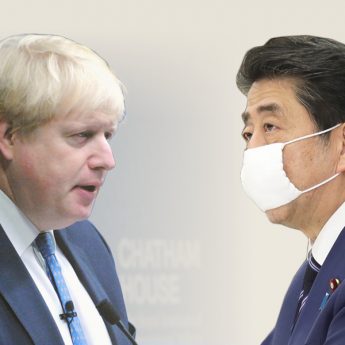Corporate governance has come to Japan. Belatedly. But in a big way. For all the wrong reasons.
Japan’s recently revised Corporate Governance Code was first adopted in 2015—often referred to as Corporate Governance Year One. This dawning of the age of corporate governance was heralded with much fanfare. Japanese corporate tongues very easily twist their way around terms such as compliance and due diligence. Firms are very careful to get their numbers right for their non-inhouse directors, while more and more staff are assigned to internal governance-related tasks.
Curious course
This is all well and good. Yet the path by which Corporate Governance Year One came to Japan is a somewhat strange one. It all began in 2014 when the government declared that it was going to bring back “a Japan that can earn more”—the implication being that Japanese firms were simply not profitable enough to compete in global markets.
Well, there was nothing very implied about it all, really. There was a very explicit reference to return on equity (ROE) as a measure of profitability, as well as an even more specific figure of 8% for which Japanese firms should aim. Apparently, the administration of Japanese Prime Minister Shinzo Abe decided it was going into corporate management and that setting numerical targets for corporate profits is a legitimate business for government.
Shaping up
Together with those marching orders aimed at 8% ROE, the government also proclaimed that Japanese firms needed to tighten up their corporate governance. Sloppy governance leads to poor profitability, it claimed. Firms needed more outside members on their boards to breathe down the necks of management, telling them to make more money.
This seems to me to be a very warped notion of what corporate governance is all about. Global concern over how firms were being run came to a head in the late 1990s and early this century. The likes of Enron Corporation and WorldCom were up to all kinds of antics to make money. It was in this climate of corporate wrongdoing run wild that, in 1992, the document entitled The Financial Aspects of Corporate Governance—better known as The Cadbury Report—came into being in the UK. Sir Adrian Cadbury chaired the commission which put it together.
The Cadbury Report very much emphasised the need for greater awareness on the part of firms of their social responsibilities. Ethics needed to be brought back within the framework of corporate decision-making. It is for these aims of making firms better members of society that corporate governance was deemed so important.
In fact, corporate governance was seen as the decisive tool with which to reprimand firms that were overly preoccupied with earnings and profitability as their sole purpose of existence.
Yet here we have, in Japan, a government that is telling firms that corporate governance is what they need to increase profits. Thus, Japanese firms now live in a world in which corporate governance and corporate social responsibility have been completely decoupled.
Indeed, the Japanese government very rarely mentions corporate social responsibility in connection with corporate governance. The term does not appear at all in the initial document which declared the revival of “a Japan that can earn more”. To the best of my knowledge, nothing like this is happening anywhere else in the world.
Offence or defence?
And what has been the result of this very innovative interpretation of the notion of corporate governance? It is that an increasing number of Japanese firms are being found out for cheating, fudging, dodging and concealment. It is since the dawning of Corporate Governance Year One that irregularities have come to light in well-established firms such as Nissan Motor Company Ltd., Mitsubishi Motors Corporation, Kobe Steel, Ltd., Toray Industries, Inc., Subaru Corporation and many others. What with Big Brother persistently shouting at them for ROEs of 8% or more, it is perhaps inevitable that poor old corporate Japan has gone down the route of conspiracy rather than compliance.
The word for firms in Japanese is kigyo. The ki bit denotes planning, initiative, schemes, that kind of thing. That sounds like what firms should be doing. But ki has another meaning: conspiracy. The search for 8% ROE seems to be driving Japanese kigyo away from what they should be doing towards what they should not.
It is becoming increasingly fashionable to talk about “offensive governance” as opposed to “defensive governance”. Defensive governance, which is concerned with compliance and social responsibility, is needed to defend firms from threats to their survival. Offensive governance is required for profitability. Or so the story goes.
All this is highly offensive. The idea that being aware of one’s social responsibility is a thing you do because you want to defend yourself from critics and whistleblowers is beneath contempt. Firms that sell their souls in Faustian bargains with Big Brother are not worth the paper they write their accounting reports on. Nor the online space.







